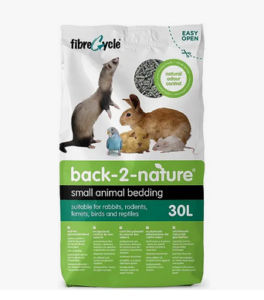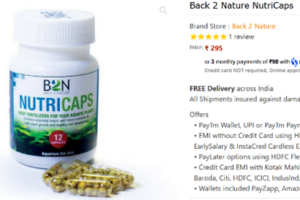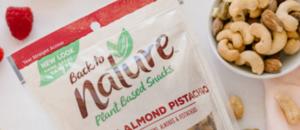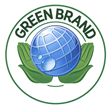Protective lifestyle brand? – BACK-2-NATURE
The case: A catchy, protective lifestyle brand was to be used for pet hygiene and care products. The Australian company Fibrecycle Pty Ltd chose the slogan BACK-2-NATURE:

The slogan is apparently so good that many other companies were already using t for their products. For example, it can be found on the backs of aquariums,

food supplements,

cookware

and snacks.

Fibrecycle, however, were not concerned at this and lodged an application

as a Union trade mark, in order that it could use the slogan for pet hygiene and care products exclusively.
The company was, in fact, confident that the slogan could be protected. Taken literally, the slogan even discouraged the purchase of these pet care products: BACK-2-NATURE stood for a simpler, less consumerist way of life that, among other things, turned away from materialism. However, the goods in question were not part of such a lifestyle. Fibrecycle argued that the customer would therefore have to think about the meaning of the slogan on the labels of these products. As a result, the slogan would become imprinted in the minds of consumers as a distinctive sign. It was therefore distinctive and could be protected as a trade mark!
Was that right?
It has been observed that consumers do not pay much attention to slogans that merely convey advertising and abstract information. Nor do they investigate the various meanings of such general slogans in detail, but rather understand them more intuitively. When they encounter such a slogan in connection with goods, they understand it in the most obvious way, as a positive statement about the characteristics of the goods in question. On the other hand, they do not see in the slogan a negative statement, such as the somewhat absurd information that would encourage them not to buy the products.
Consumers therefore would immediately and unambiguously associate BACK-2-NATURE with the message that the products represent a return to a past in which goods were produced in an environmentally friendly way and that the goods are good for the planet. From that, the slogan merely makes a positive statement about the characteristics of the goods in question, namely that they are made of and contain natural ingredients or materials. The slogan is neither a play on words nor an imaginative name.
Slogans that are perceived solely as advertising slogans, quality references or invitations to buy the goods cannot distinguish the products of one company from those of other companies. They cannot therefore be registered as trademarks.
This does not alter the fact that a trade mark, by virtue of its advertising and communication function, is intended to have an attractive effect. It should also arouse curiosity, give rise to mental associations, and evoke (pleasant) notions which may relate to the products. However, a mark may not have solely such an attracting effect. If it does, it lacks distinctiveness and cannot be monopolised for the benefit of one company.
BACK-2-NATURE was refused registration as a trade mark.
General Court of the European Union, 12 July 2023, T-772/22.
Learnings: If you want to develop a lifestyle brand, make sure that the designation is not understood by consumers solely as a promotional tool. Look at the brand from the consumer’s point of view. The latter is not very attentive and often tends to see, intuitively, a lifestyle brand as an advertising medium in the most obvious way when they encounter it in connection with goods or services.
If the lifestyle brand is to contain a sustainability statement, it is better to seek a licence to use a certification mark if in doubt. A certification mark was created by the European Union as evidence of the existence of certain characteristics of products and services. The Green Brand Seal is such a European certification mark for sustainability:

Note: For the meaning of the certification mark, also read the following BestCase:
How do you prove sustainability without greenwashing?